Unchanged for years, the mission of the European Economic Congress has always been to provide a broad and diversified forum for debate about the future of the Polish and European economy.
The organisation of the Congress serves exactly this purpose. Covering a wide spectrum of essential and topical socio-economic matters, the rich agenda of the three-day meeting is born out of a variety discussions, recommendations, ideas, inspirations and comments.
The 16th edition will bring changes designed to boost the status of the event, but also reinforce the strongest assets of the EEC brand. We will improve on the formula of presentations and increase the space dedicated to the event. Our guests will include even more representatives of foreign companies, institutions, organisations and governments. Like every year, the congress will also be accompanied by side events such as competitions, galas and banquets.
Each edition of the EEC is preceded by a campaign led by representatives of numerous societies, persons of unique talents, as well as leaders in their field. Aiming to collect material that – following plenty updates and modification – will allow us to develop an agenda accommodating crucial challenges of complex present times, we are officially launching the campaign promoting EEC 2024.
Traditionally, we are opening a discussion and welcome your contributions, as you will determine the substance of a major business event in this part of Europe.
2023 has seen a rise in uncertainty and volatility. The next year is expected to bring more of the same in terms of global and national politics, economics, market conditions, as well as social issues and technological disruption.
A few thematic fields explored at the Congress will be particularly engrossing.
Among them is the transformation of the fuel and energy sector as well as efforts undertaken to eliminate their negative environmental impact. The reduction of carbon footprint, sustainable production, green financing of investments, ESG goals are on the lips of everyone for one obvious reason: these are the factors defining one’s competitive advantage.
New light on these subjects was shed at PRECOP 28 held this October in Katowice. They will be also be high on the agenda of COP 28 scheduled for November in Dubai.
Unavoidable transitions and changes take place against the backdrop of crises, the spectre of energy and raw materials shortages, as well as the exorbitant costs of, and tight deadlines for, adapting to the new green guidelines. Importantly, there is a difference of opinion between those having the most significant impact on climate and the ones who begin to suffer its consequences.
Since its start during the pandemic, the digitalisation of the economy has not been slowing down. The use of digital tools and technologies, motivation, inclination and ability towards innovation appear on front pages of development strategies adopted by big players and smaller companies alike. The most frequently asked questions are related to safe adaptation to the digital era, concerns about addiction to technology and their suppliers, or different forms of cyber aggression.
The agenda of the 2024 Congress will also need to include difficult subjects such as geopolitics and increasingly complex, at times even hostile and dramatic, relationships between states.
The war raging behind Poland’s border and new conflicts will continue to influence global, European and national politics, affect trade, economies as well as conditions for social development. A world of widening gaps, where conflicts and extremism are on the rise, will set the stage for increased migration and other problems the scale and nature of which render crisis scenarios obsolete.
Becoming more international than ever, the Congress will address the problem of current turbulent times and the frail new order. Apart from many questions, we will ask what European businesses should focus on if they seek to utilize their potential and consider the potential of more distant markets like the Persian Gulf, Southeast Asia or Africa.
These questions will be pondered in the context of a political, economic and technological rivalry between global superpowers and Europe’s attempts at defining its place in the polarized world.
How we address dilemmas concerning our future will largely depend on the political landscape of Poland after its general election but equally important will be the new opening in the European Union and the result of the 2024 presidential election in the United States.
Shaped anew, relationships between economics and politics, business and power, or among prominent economies of Europe and the world, will determine conditions for further development and resilience for future crises. Poland’s access to, and effective use of, EU funds might provide a valuable example of the above.
With many more subjects deserving consideration, EEC Trends and the European Economic Congress will provide a great opportunity to address them. Today, we are only highlighting the most important of them and draw your attention to the grand task lying ahead of us.
We count on your involvement, creativity, sensibility and spirit.
You are welcome to co-operate with us!

